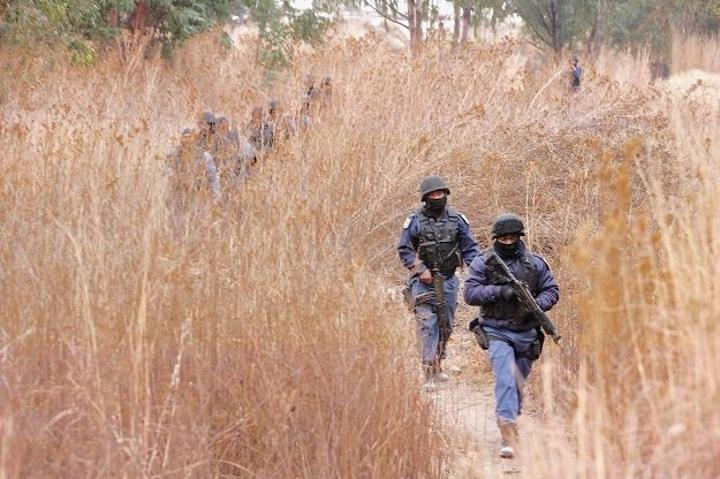Africa-Press – South-Africa. The media need to do better when reporting the gang rape in Krugersdorp. Currently, some stories and headlines create more confusion and tension when dealing with an already heightened emotive situation, write Thandi Smith and William Bird.
Rape is a crime. It is one of the most egregious acts of violence and abuses of power. Rape is also endemic to South Africa. There is a war against women living in South Africa, and those responsible for allowing this war to continue, those responsible for the rapes, need to be stopped and held accountable. It seems extraordinary that these basic truths need to be stated, but such is a parlous state of some speaking in the media, that it is necessary to state them.
Illegal mining is a crime. The known criminal syndicates operating in and around South Africa’s unused mines need to be dealt with, and those responsible need to be arrested and charged. In the past, media have produced some excellent, nuanced reporting on the life of the zama zama’s, how precarious their lives and those who surround them are.
Being in South Africa without any papers doesn’t mean the person is guilty of an offence or even that the person is here illegally.
Entering or staying in South Africa illegally with a fraudulent document is an offence. Working and or staying for longer than three months may be an offence if you don’t have the proper permit in terms of the Immigration Act.
Applied for asylum
Similarly, if you enter the country undocumented, you must report to a refugee reception office within five days of your entry into South Africa to apply for an asylum seeker permit. If you don’t, you may then be guilty of an offence. Finally, it might be that you have applied for asylum – a decision which may take years to finalise – during which time you are entitled to be in the country.
Every single person in South Africa should be outraged and angry at the horrific gang rape that took place involving eight women while filming a music video in Krugersdorp.
What is appalling is undoubtedly the scale and depravity of the rapes, the humiliation, violation, and casual brutality of how the dignity of those involved was violated. The shift and efforts by some to blame non-South Africans not only feeds xenophobic stereotypes but detracts from the rape. Rape is rape, whether it is committed by someone who is American, Irish, Russian, Nigerian, Ghanaian, Siswati or South African. It is the rape that is the offence, not the nationality of the person committing it.
According to the SAPS there were 11 000 rapes reported in the first three months of 2022. That at least 121 women are raped every day in South Africa is the crisis. Why is the nationality of those who are raping relevant?
Why the focus on nationality?
At present, there does not appear to be any evidence to suggest that nationality was a factor in the gang rapes in Krugersdorp. If there is evidence and it is found that there is an element of hate based on nationality involved in the motivation of the rape, then we should consider the rape with an aggravated offence of a hate crime. It would seem only at that stage the nationality of both the perpetrators and the rape survivors would become relevant to the reporting. Unless or until that occurs, focusing on the nationality detracts from the rape as it seeks to offer either a scapegoat or proffer simplistic solutions to an offence that is incomprehensible in its brutality.
In addition to rape, we have witnessed an increase in Afrophobia and xenophobia. Whether it is coordinated like “Operation Dudula”, or whether it is a legitimate expression of anger and frustration by people who are angry at the litany of failures by our government in creating jobs or ensuring the rule of law is adhered to, it is clear xenophobia is a threat to our already volatile society. Our media – and by this, we mean credible news media, have generally done well when reporting on xenophobia.
Krugersdorp rapes: What we know so far about horrific attack that shocked SA
As it stands, the media in South Africa need to do better when reporting the gang rape in Krugersdorp. Currently, some stories and headlines create more confusion and tension when dealing with an already heightened emotive situation.
A recent News24 article, with the headline Krugersdorp rapes: Police throw net wide in show of force but face tough task is confusing as it starts by giving an account of the arrests, and linking the arrests to possible rape suspects, but it also says that the police are having a difficult time making a link between the men arrested and the gang rape that took place. The reader is thus left unclear as to whether the people were arrested on charges of rape, or was it for being undocumented or for violation of their visas.
This Eyewitness News article, with the headline Krugersdorp gang rape: Suspects due back in court on Wednesday offers even less clarity. These suspects are yet to be charged with rape. So, what exactly are they back in court for, and why have they been naming them as rape suspects? In the fourth paragraph of the article, it states: “For now, though, the only charges they face relate to them allegedly being in the country illegally”. This headline is misleading.
Another misleading headline, in IOL reads Over 80 illegal miners arrested after horrific Krugersdorp gang-rape, robbery. Yes, it would appear that over 80 illegal miners were arrested, and yes, it was after the gang rape took place. A reader would automatically assume the arrests were of the suspects linked to the rape – but again, this is not the case.
Articles create confusion
These are just a handful of examples of how our media are covering the story. Not only do these articles create confusion, the way in which the story is covered makes it seem that the 80 people arrested were all arrested in connection with the rape. That is simply not accurate, as reflected here.
As of 3 August 2022, not one rape charge has been laid against any of the 80 men arrested. What we do know is that all the men (some of which are under the age of 18 and are therefore children) were charged with being in the country illegally. The very real implications of the way in which media have represented this story, can be seen in this article, published in the Washington Post, 1 August 2022. 80 men in South African court on charges of raping 8 women, as well as The Guardian, here: Over 80 men accused of raping eight women appear in South African court.
Krugersdorp rapes: What happened here ‘should serve as a wake-up call’ – ANC’s Pule Mabe
Let’s be clear, it is essential that the SA and our government act in accordance with the law and uphold the law, especially when it comes to our immigration and mining laws. It is also clear that our police act against those who rape, and that those arrested are charged and tried for their crimes.
How is it that more than three years after a strategic plan on gender-based violence and femicide was developed, there is still no action? Where are the plans and resources by the SAPS and government to act against gender-based violence? Why are our media not asking daily where the implementation of those plans is?
Its only too easy to let populist politicians scapegoat foreign nationals, to heighten and incite anger, and divert from the hard work of acting against gender-based violence. We shouldn’t give them the space to do that.
Rather our media need to be asking all parties what they have done to ensure that national plan of action against gender-based violence is being acted on and implemented?
Krugersdorp tragedy
We are all horrified by the rape of the women in Krugersdorp, and we need to ensure that the horror is put in context. Yet again, more women are raped and, yet again, all we seem to have is outrage – where is the action from our security services, the SAPS and government? It seems their response is to suggest they have acted by arresting a lot of undocumented people.
We need action by government, hard and repeated questions from our media about what is being done to implement the plan. Crucially, we need our media to hold our politicians accountable, not let them get away with scapegoating and glib answers. It seems to be an easy win for any opposition party to demand and pursue action from government on gender-based violence. Our media can ask them how they are doing.
Another consequence of the story has been that those who speak in opposition to xenophobia, those who assert basic human rights, those who wish to highlight the issue of rape over the issue of the migration status of people have been and are being systematically trolled and attacked online.
The rise of online harm is an area we have been working with the South African Human Rights Commission to help address. Those who seek to silence, to threaten, troll and harass, may discover the consequence for their words.
For our part as Media Monitoring Africa, we will continue to work to combat hate speech online and harassment as well as incitement and disinformation. Our elected public leaders must now live up to their oaths of office and protect, respect, and deepen the rights in our Constitution, and our media need to hold those that fail to do so, accountable.
– Thandi Smith is head of programming and William Bird is the director of Media Monitoring Africa.
For More News And Analysis About South-Africa Follow Africa-Press






